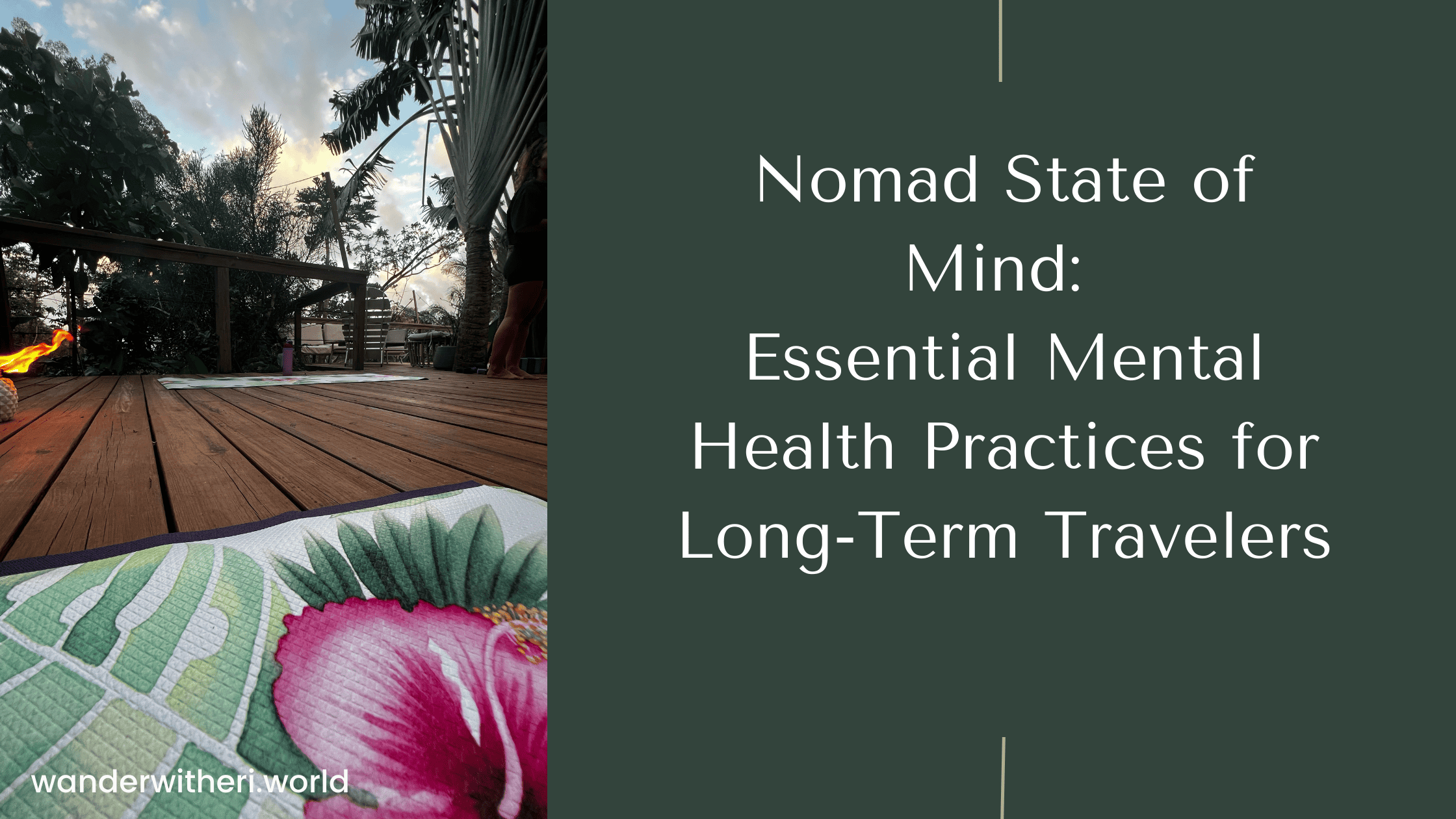Life as a full-time traveler can be both exhilarating and challenging. While Instagram shows the glamorized version of the nomadic life, the reality of constant movement and adaptation requires intentional mental health practices. This guide reveals the true experience of maintaining mental wellness while embracing the nomadic lifestyle.
From building self-awareness to managing travel fatigue, we’ll explore the essential mental health practices that make long-term travel sustainable. Learn how to create stability within yourself when your external environment is constantly changing.
3 Key Takeaways:
- Travel builds emotional resilience and self-awareness through constant adaptation to new environments
- Maintaining mental health while traveling requires establishing portable routines and staying connected with support systems
- Professional support and mindfulness practices are essential tools for managing the challenges of nomadic life
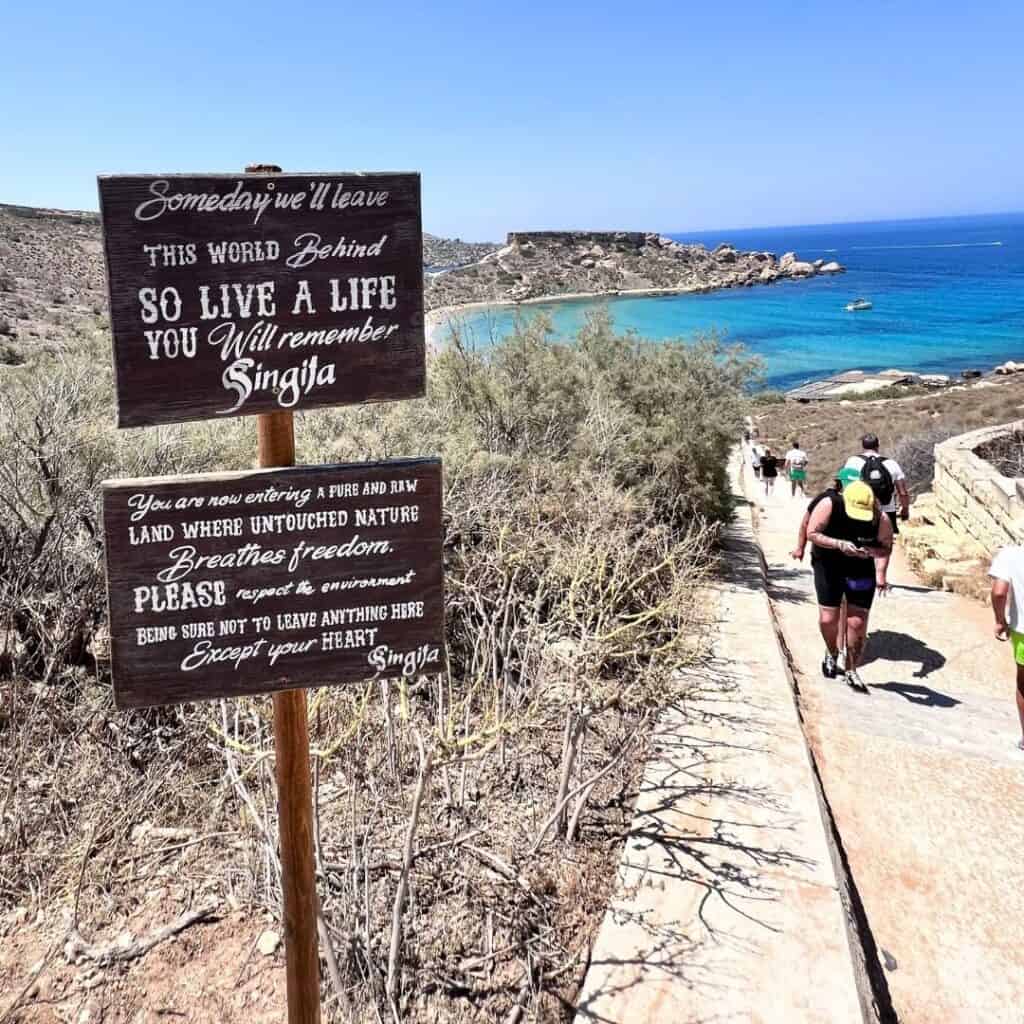
Maintaining Mental Health as a Full-Time Traveler
A life of full-time travel can be exhilarating, fulfilling, and every other adjective that fills the travel and adventure seeker’s backpack. At times, travel is unpredictable, unstable, and full of twists and turns (literally and figuratively). It can certainly take a toll on the mind, body, and soul, and it’s essential to prioritize your mental well-being along the journey. Travel also brings benefits to our mental well-being. It’s about balance and finding stability in ourselves when the world around us is unstable, and regulating our central nervous system.
Benefits of Travel on Mental Health
Travel offers numerous scientifically-proven benefits for mental health and emotional well-being. When we venture beyond our comfort zones, we experience personal growth through increased self-awareness, enhanced critical thinking abilities, and improved emotional resilience. Travel helps us develop deeper empathy by exposing us to diverse perspectives and cultures, while simultaneously fostering meaningful social connections with people from all walks of life.
The challenges we face while traveling — from navigating language barriers to solving unexpected problems — strengthen our cognitive flexibility and adaptability. These experiences boost our self-confidence and provide valuable opportunities for personal reflection and mindfulness. Additionally, breaking free from daily routines through travel can help reduce stress and provide a fresh perspective on life.
Whether traveling solo or with others, the experience pushes us to develop better communication skills, build stronger problem-solving abilities, and cultivate a greater sense of independence. These mental health benefits often extend well beyond the journey itself, contributing to long-term psychological well-being and personal development.
Travel Builds Self-Awareness & Emotional Stability
Traveling alone with just your thoughts for company can be a deeply confronting experience—yet there’s something profoundly empowering about choosing solitude. It sharpens you, softens you, and ultimately, teaches you to belong to yourself in a world where we humans crave a sense of belonging.
Who are you when you’re not processing experiences through others’ perspectives?
What insights emerge when you tune into your internal monologue and observe your reactions without a familiar audience?
At times, we have an identity crisis, changing locations. I see that as reinventing ourselves, over and over. It can be exhausting, but with each destination, we become a more beautiful version of ourselves.
It’s also the perfect opportunity to unplug and connect with nature—a proven boost for mental health. By immersing yourself in the natural world and reaping the physical and mental benefits of being outside, you’ll develop a more personal understanding of why these vital spaces deserve protection.
Travel Expands Mental Resilience
Travel mishaps, wrong turns, unexpected delays, the gap between expectation and reality—there will be bumps along the way (though these often make the best stories!).
How can we use these moments to strengthen our mental wellbeing?
Travel—whether solo or with companions—exposes us to diverse perspectives, enhancing our critical thinking and mental flexibility. This is particularly true when exploring unfamiliar cultures, but it applies to any group travel experience. Everyone handles unexpected situations differently, and navigating these challenges naturally develops our problem-solving abilities and cognitive skills.
After successfully handling what once seemed like an insurmountable problem, similar challenges become less daunting. You’ve built mental flexibility and strengthened your resilience that next challenge is just another fart in the wind to you.
Travel Deepens Empathy & Social Connections
Travel offers the chance to walk in others’ shoes—the essence of empathy. When you’re open to the experience, travel naturally cultivates deeper connections, both with fellow travelers and locals you meet along the way. These interactions enhance your social intelligence and compassion, fundamental elements of mental well-being.
Learning to look beyond ourselves and practice empathy reveals the world in a new light: as something precious to protect and cherish. This shift marks a crucial step in our journey toward sustainability.
Some destinations teach us about the darker side of travel and our privilege in the world. The detrimental impacts of colonization, climate change, and tourism.
Can we challenge ourselves to become mindful travelers who approach experiences with conscious curiosity and a decolonizing lens, rather than judgment?
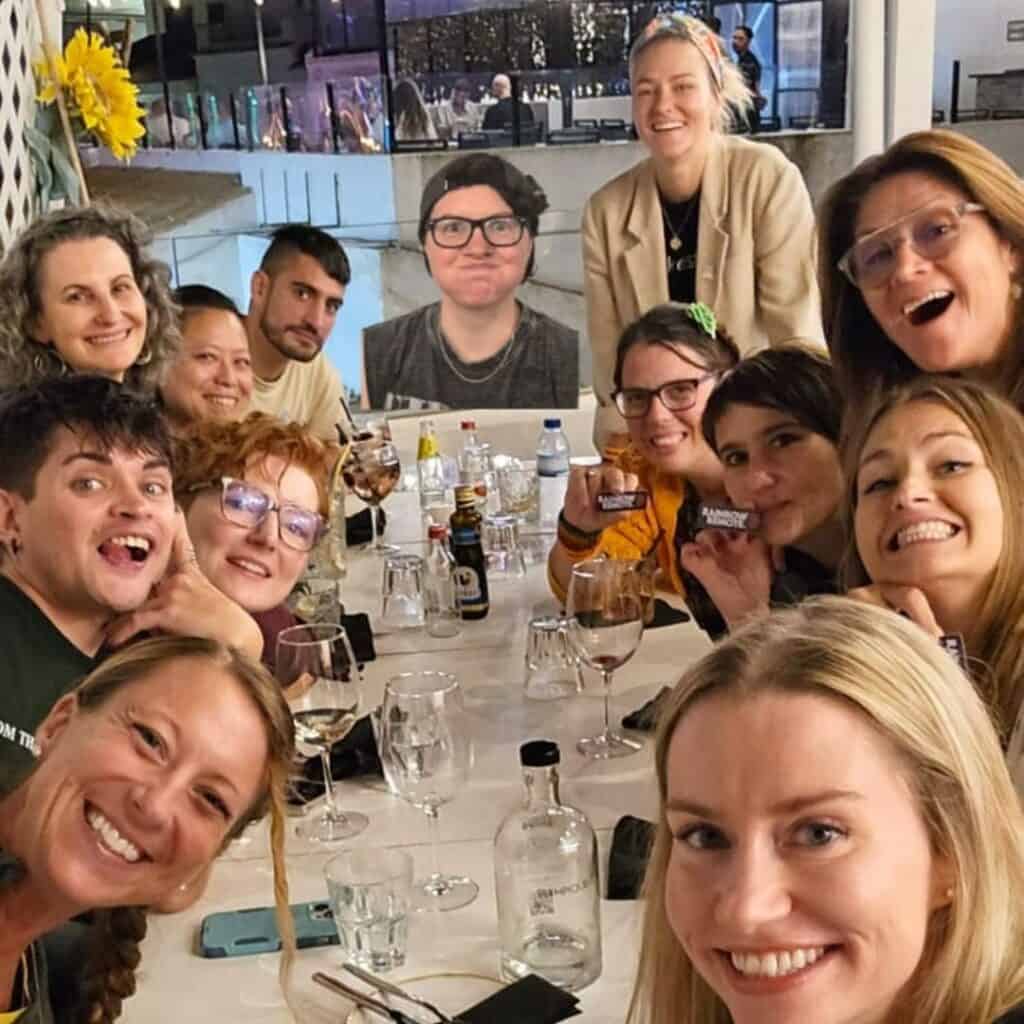
Travel Increases Collaboration & Cross-Cultural Experiences
Before a life of full-time travel, I would say I was an outgoing introvert.
Now, and after those damn online quizzes, I’m an extrovert. I rely on strangers or community members for help, naturally enhancing confidence and communication skills, conflict resolution abilities, and capacity for building trust, while keeping my wits about me.
Through openness to collaboration and teamwork, we forge deeper social bonds and build community, essential elements of mental wellbeing. As we grow personally, we discover our power to inspire broader change within connected communities. Social collaboration becomes our shared tool for caring for people and the planet.
Cross-cultural experiences can lead to:
- Better flexibility in tackling challenges
- More creative problem-solving in the workplace
- Fresh approaches to managing projects
- Broader thinking beyond traditional boundaries
Travel Boosts Courage & Emotional Resilience
Sometimes I ask myself, “Did I act out of courage or stupidity? Probably a little bit of both.”
These experiences build mental flexibility and emotional resilience that serve you well beyond your travels. Adventure travel—whether hiking, surfing, or mountain climbing—pushes personal and physical boundaries. Think of the adrenaline rush, the thrill of mastering something new, or discovering hidden capabilities. These experiences build courage, perseverance, and comfort with uncertainty. Not to mention, increased resilience and adaptability from navigating new situations, each new country, city, language, or culture presents unique challenges that strengthen your problem-solving skills. Whether it’s figuring out public transportation in a foreign language, adapting to different cultural norms, or finding creative solutions when plans fall through. It’s also a mindset shift and going in without expectations and being pleasantly surprised, otherwise, you may set yourself up for disappointment. I try not to take this life of travel for granted.
Courage and emotional resilience are cornerstones of mental well-being. They’re also crucial for making positive change in the world. We can’t achieve our collective sustainability goals without individual action. By actively developing courage and resilience, you become someone who can confidently stand up for their beliefs, inspiring change within your sphere of influence.
Essential Mental Health Practices for Travelers
Maintaining mental health while traveling requires a thoughtful balance of routines and flexibility. Essential practices include establishing portable daily rituals, staying connected with loved ones through regular communication, practicing mindfulness through meditation or journaling, maintaining healthy sleep patterns despite changing time zones, setting boundaries with digital devices, and seeking professional support when needed. These practices help travelers ground themselves amidst constant change, combat travel fatigue, and build emotional resilience. Additionally, finding local communities, engaging in physical activity, and allowing for regular rest days are crucial for sustained mental wellness on the road.
Establish a portable routine: Create consistent morning or evening rituals that ground you
Sure, breaking free from routine reduces stress, ravel shakes up our usual patterns, which benefits mental health. However, I believe it’s about balancing structure and flexibility, especially for long-term travelers. Some ways to ease into a routine and stabilize the nervous system: While routines give us structure, stepping away allows us to:
- Reset our mindset and see things differently
- Take a break from everyday pressures
- Embrace the thrill of spontaneity and discovery
- Walking, cleaning, or other forms of movement
- Morning coffee or reading
- Virtual or in-person yoga classes. I find community in yoga classes, and I go — even if I’m not fluent in the language the class is taught in. I don’t care — the collective movement, breath, and union of yoga bring us together regardless of language. Practicing movement and mindfulness while meeting other folks is a great way to get acquainted with the community.
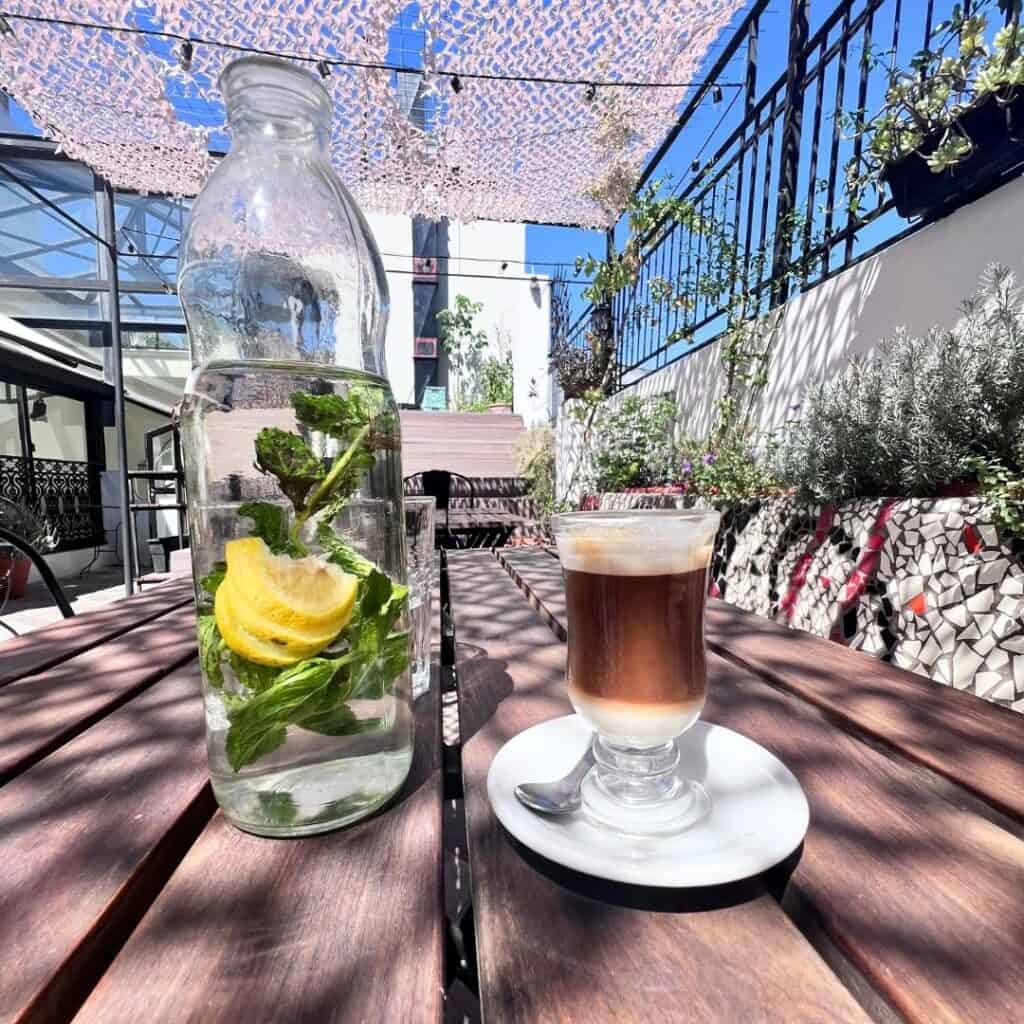
Stay connected: Schedule regular video calls with family and friends
The reality of being nomadic is that you will miss out on friends and family events. Still staying connected and a part of a community, it’s part of the human experience.
Practicing good sleep hygiene
Easier said than done, right? Navigating time zones and sometimes sharing living quarters with other travelers can take it’s toll and may take time to get into a healthy sleep pattern. Sometimes for a well-rested night will help with mental clarity and the immune system. Getting around 7-9 hours of sleep, avoiding blue light before bed, and using some techniques to wind down before bed, like reading, showering, and other tips here.
Create digital boundaries
Set aside offline time to fully immerse yourself in your surroundings. When I get to a new place, I find my relationship with electronics gets really toxic. I’m doom-scrolling, spending too much time researching a place, trying to find community but it leaves me feeling less connected, burnt out, and comparing myself. Timers or being aware of how screen time and social media are impacting your mood and sleep is a great way to regulate screen time.
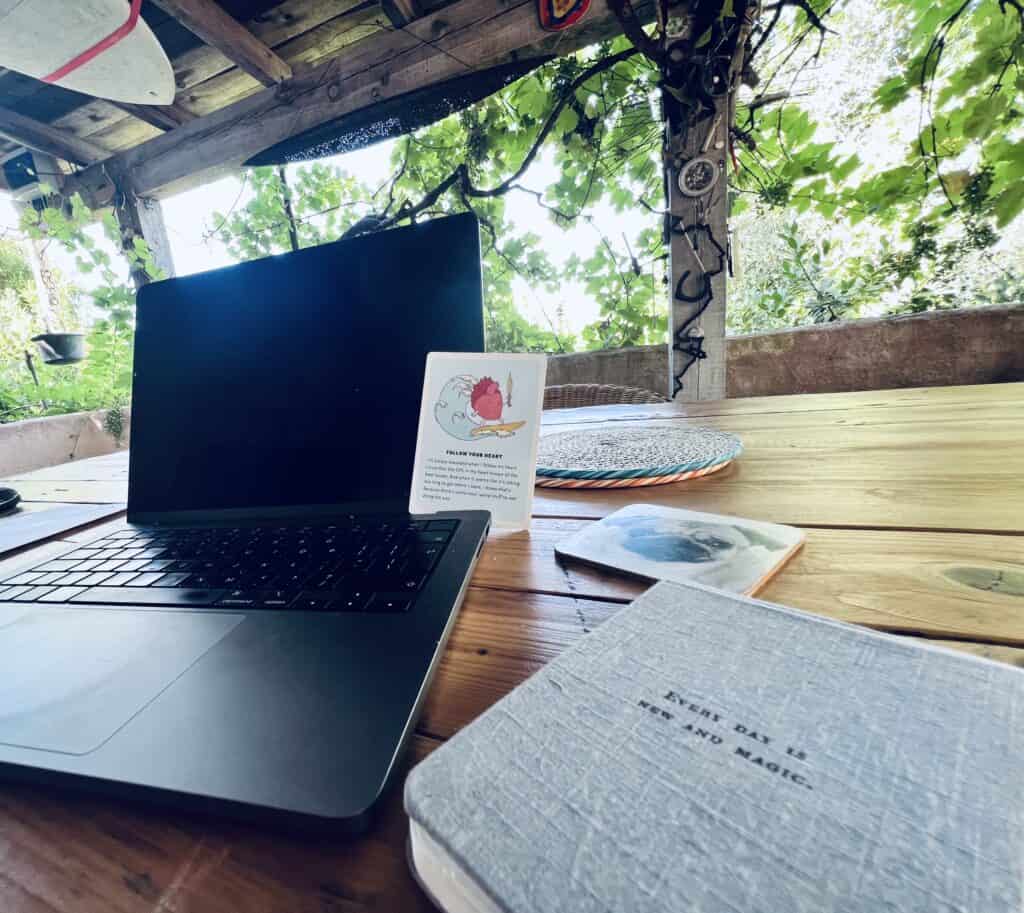
Remote Professional help
There are several online therapy platforms, and I get it, finding the right therapist for you is just as bad as dating. Here are some guidelines and questions to ask yourself when searching for a therapist. I’ve had great luck with TalkSpace and meet once a month for a ‘tune up’ (and here’s a discount code if you hit it off with a therapist that’s right for you)
Essential Mental Health Practices for Travelers
While the location-independent lifestyle offers incredible freedom and opportunities for personal growth, it comes with unique challenges that can impact mental well-being. From dealing with constant transitions and cultural adjustments to maintaining relationships across time zones, full-time travelers face various obstacles that require intentional strategies and coping mechanisms. Understanding these common challenges and having practical solutions ready can make the difference between thriving and merely surviving on the road. Here’s a look at the most frequent challenges many full-time travelers encounter and effective ways to navigate them:
- Combat loneliness: Loneliness is inevitable wherever you are. It’s when we can be content, confident, and courageous in our own company will we find the softness and strength in being alone. While we are designed for human connection, finding community in our global travels can be a challenge. I suggest slow travel, staying in places for a longer time (30+ days if feasible) is when we can gain a deeper connection and insight into communities, finding digital nomad communities or local meetups. Volunteering is also a great way to meet locals and travelers alike.
- Handle travel fatigue: Schedule rest days and maintain a comfortable pace. Rest is productive and time is fleeting, but don’t guilt-trip yourself into having to do and see it all. Diet, water, and rest, especially after a long-haul flight, takes its toll. Give yourself some time to adjust.
- Deal with uncertainty: The unknown is teaching us how we can handle situations thrown our way and develop contingency plans for common travel disruptions. Some days, I didn’t know where I was going to live. Some days, I was stranded. But we figure it out along the way. Trust yourself, you are much more capable than you may think.
Remember that it’s okay to slow down, take breaks, and prioritize your mental health even while pursuing your travel dreams. If you’re feeling overwhelmed, consider staying in one location longer or creating a temporary home base to recharge.
Let’s Connect
- Are you looking to elevate your travel or tourism brand? Or looking to get personalized travel planning assistance? I’d love to help you on your journey and create greater awareness of responsible travel!
- 📧 Email: Let’s chat about your travel goals – drop me a line
- 📱 Social Media: Follow along on Instagram @wanderwitheri for daily travel inspiration and tips

